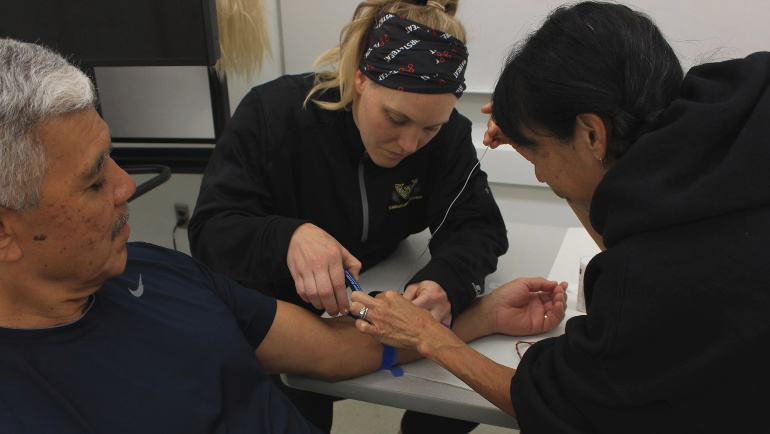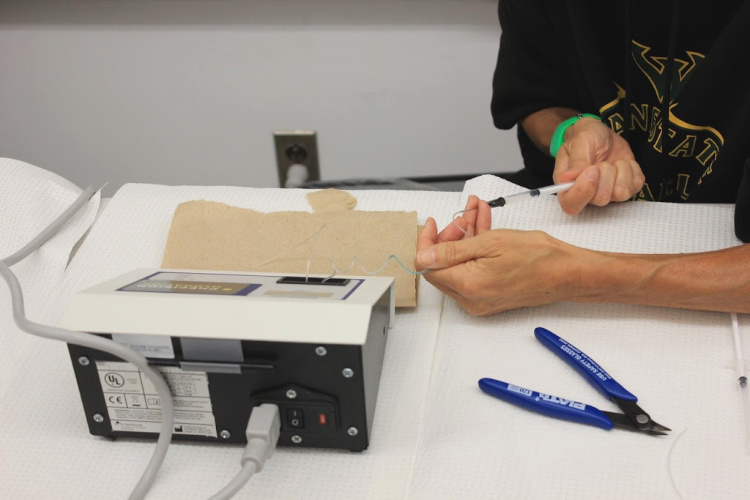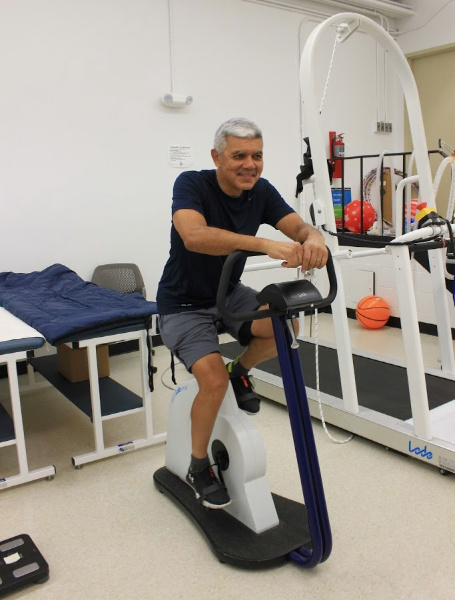
In the 1990s, four cyclists participating in the Tour de France took part in an unpublished study that found the riders lost 25 percent of their lumbar spine bone mass over three weeks of riding. Coming across this information gave Tamara Hew-Butler, associate professor of exercise physiology, the idea of studying the impact of sodium loss on bone health in endurance athletes.

“A lot of people talk about calcium, but bones also contain sodium and our work suggests that under-replaced sweat sodium losses in ultra-endurance runners is related to bone loss, which may explain why distance cyclists and runners have low bone density, or osteoporosis,” said Hew-Butler.
Last year, Hew-Butler joined Wayne State and met President M. Roy Wilson at the Imlay City stop of his 500-mile Road Warrior cycling tour where she told him about her research.
Prior to this year’s five day, 450-mile WSU Road Warrior, President Wilson reached out to Hew-Butler to undergo a “sweat test” so that he could optimize his salt intake and his performance.

Hew-Butler uses a Precision Hydration “sweat test” machine in her lab in the Education Building that stimulates the sweat glands, collects sweat in a tube, and measures sodium loss.
“A lot of professional sports teams use this machine to optimize fluid and salt intake,” said Hew-Butler.
In President Wilson’s case, he is now armed with the knowledge of how much salt he loses each hour of cycling, and how much of a replacement supplement he should use to avoid muscle cramps and other potential issues.
Hew-Butler also performs a variety of other fitness related research in her lab. Her lab is about to start a stress and performance research trial on WSU's football and basketball teams, as well as a screening project called 10,000 Warrior Project to assess the state of mental and physical health of the Wayne State and surrounding communities.
